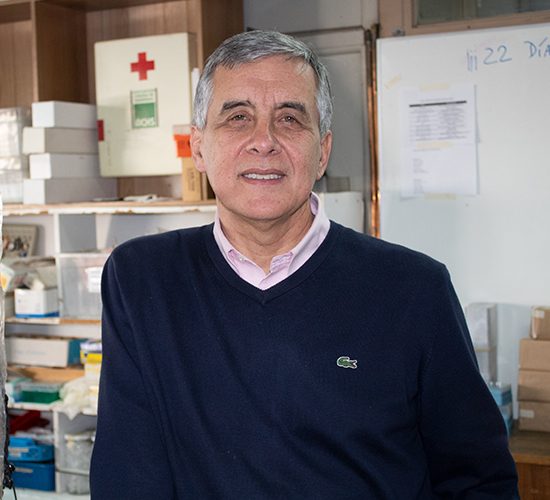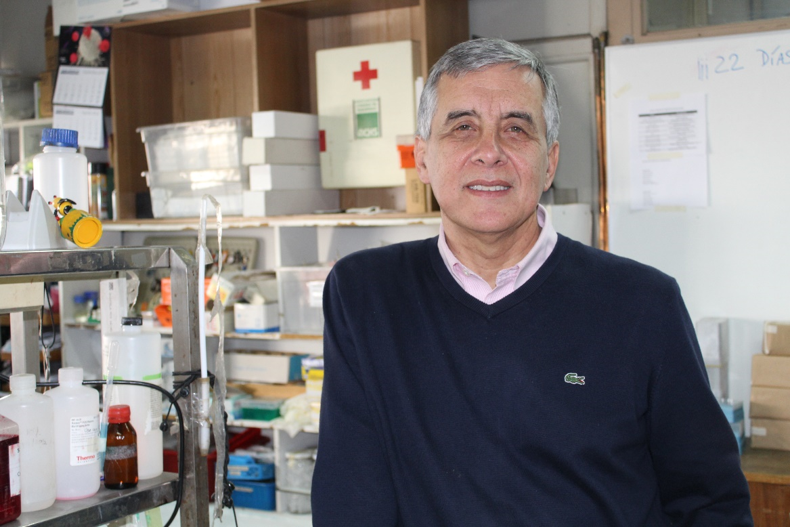Chilean expert is featured in the journal Nature Reviews Cardiology

As part of its 15thAvo Anniversary, Nature Reviews Cardiology, one of the most prestigious scientific journals in the area of cardiology, invited six members of its Editorial Committee to have an individual opinion on the most important advances in cardiovascular research in recent years as well as the challenges and projections for the years to come. These leading researchers from research centres in Australia, China, United States, England and Chile published their views in the article "Looking back and thinking forwards — 15 years of cardiology and cardiovascular research”, being one of these experts Dr.. Sergio Lavandero, full professor at the University of Chile, Director of the Center for advanced chronic diseases (ACCDiS ) and an adjunct professor at the University of Texas Southwestern Medical Center in Dallas, United States.

This publication stands out among a variety of themes, advances in procedures to diagnose and treat high blood pressure, cardiac arrhythmias, pulmonary arterial hypertension, as well as in the discovery of new drugs to prevent inflammation and elevated cholesterol levels. This article also reveals the importance of establishing the first experimental model of heart failure with preserved systolic function that faithfully mimics what is observed in patients as well as the discovery of the molecular mechanism that explains its Genesis. It should be noted that these findings recently published in the journal Nature emerged from the joint research carried out by research groups led by Dr.. Joseph a.. Hill (University of Texas Southwestern Medical Center in Dallas and Dr.. Sergio Lavandero at our university.
Regeneration and heart transplants
For the American cardiologist Matthias Nahrendorf, the presence of macrophages in the heart and its contribution to the regeneration of the heart infarction is one of the most significant milestones in its area of expertise. On the other hand, for the English scientist Magdi Yacoub, ongoing studies of organ transplants from one species to another species is the most important advance given the small number of donors and how effective this intervention is for the treatment of heart failure.
Drugs that not only contribute to the treatment of cardiovascular disease
Given the current relevance of obesity, Diabetes, hypercholesterolemia and high blood pressure in our societies and their identification as key risk factors for the development of various cardiovascular diseases, Dr. Lavandero highlighted in this article that our current cardiovascular therapeutic arsenal has expanded and that some drugs used to treat these metabolic diseases are also alternatives for the treatment of diseases Cardiovascular. Quote as an example, Canakinumab, antibody initially generated for the treatment of inflammation in arthritis but that its administration in patients with a previous history of myocardial infarction and persistent inflammation revealed a noticeable reduction in cardiovascular events. On the other hand, the combined treatment of Sacubitril with Valsartan in undercardiac patients has also been expanded to decrease cardiovascular risk associated with diabetes mellitus.
Technological advances
This publication also highlights the technological advances mentioned by Dr.. Jonathan M. Australia's Kalman in high-resolution 3D mapping and ablation techniques for cardiac arrhythmias with excellent clinical results. In the opinion of Dr.. Felix Mahfoud (Professor in the Department of Internal Medicine and Cardiology at Saarland University Hospital and Harvard-MIT, Biomedical Engineering), highlights are around the role of renal ineration in high blood pressure and new radiofrequency catheterization and ablation procedures, ultrasound and chemical to generate renal denervation in resistant hypertensive patients.
From another point of view, Dr. Lavandero projects that the development of artificial intelligence through machines that mimic our cognitive abilities, by heart, learning and decision-making will revolutionize cardiovascular medicine. These new technological resources will bring significant advances, including the optimization of electronic clinical records, cardiovascular imaging analysis and electrocardiograms, remote patient monitoring, precision personalized medicine and massive clinical data analysis, either of patients with cardiovascular pathologies, individuals in epidemiological cohorts to identify protective factors and cardiovascular or clinical trials of new cardiovascular drugs.
The science and media of the future
The six experts agree that mainly the dissemination of new scientific findings in the cardiovascular field will continue to be carried out in international journals indexed with editorial committees and by peer evaluation mechanisms specialized in anywhere in the world. However, emphasize that the current trend of disclosing scientific research to society through social media will intensify in the coming years.
